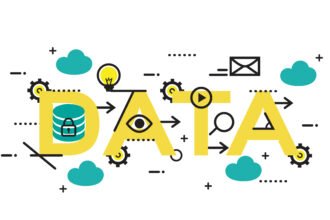Big data technology is essential to the field of robotics. Big data has made it easier than ever to automate certain processes with complicated robotic tools.
Robotic Process Automation or RPA is a computer coded software that helps automate tedious, rule-based processes, thus improving productivity, eliminating human errors, and bringing value to the organization. These tools rely very heavily on big data technology.
The Importance of Big Data in RPA
According to the following statistics, you can expect that:
- The RPA market will reach $2.9 billion in 2021
- Automation can cut operating costs by up to 90%
- RPA has become a mainstream technology in 2019, and is expected to grow exponentially over the next 5 years
- Banking, Insurance, Healthcare, and Retail are the top industries leveraging the power of RPA
With digitization growing by leaps and bounds, enterprises across all sectors are embracing RPA more than ever before. With such staggering growth, enterprises are gung-ho about embarking on the automation journey.
What are the processes that can RPA automate?
As you’re aware, RPA can automate any process that does not require human intervention, relieving the employee to focus on higher-value work. Be it banking, telecom or retail, RPA bots can be deployed quickly, helping enterprises realize the benefits of RPA implementation.
Here are a few processes that RPA can automate:
Website scraping: RPA is used widely across enterprises for website or screen scraping. Website scraping refers to the extraction of data from websites, analyzing, comparing it to competitors’ and storing it in databases for later use. RPA not only helps scrape information, but takes it a step further by deriving the right information and automating tasks such as sending emails to clients etc.
Web scraping with Robotic Process Automation takes over monotonous tasks, thereby reducing human errors, and taking care of all your web data needs.
Mass email processing: Yes, RPA bots can help automate email processes as swiftly as possible. If you as an organization send across thousands of emails to prospective customers/clients, RPA can make this a breeze — segregating emails, responding to common customer queries, archiving emails, and deleting messages.
Order processing or order entry: Manually keying in information, comparing orders and shipping addresses can be a tedious and time-consuming process. With RPA, enterprises can get rid of manual processing of purchase orders, thus saving time handling complex workflows. Once the instructions are fed into the software, the RPA bot can work 24/7 without any human intervention, thereby enhancing accuracy.
Candidate sourcing: The HR department face a huge volume of employee data to manage, store and keep track of. RPA can automate processes in HR, capturing and analyzing interested applications, assessing results, as a result, getting rid of legacy systems.
Payroll processing: A modern payroll software relies on RPA bots to implement the payroll management process — collating data and converting it into a standardized format, storing data in a single database, and scheduling repetitive tasks such as payslip generation.
Other processes include:
- Data management — Data validation, data migration, and data updates
- Customer onboarding
- Creating invoices
- Updating inventory records
- Know Your Customer (KYC)
- Loan processing – validating loan applications
- Credit card processing
Big Data is Vitalizing the RPA Industry
Put simply, for businesses that rely on repetitive, tedious tasks, Robotic Process Automation is an efficient and cost-effective way to standardize and streamline processes. RPA when combined with cognitive technologies such as Machine Learning and AI, can take over tasks that require decision-making, and perceptual abilities. With the hype around RPA growing by the day, businesses are now learning how RPA works to make the transformation to a truly digital enterprise. Where do you stand in your automation journey?










